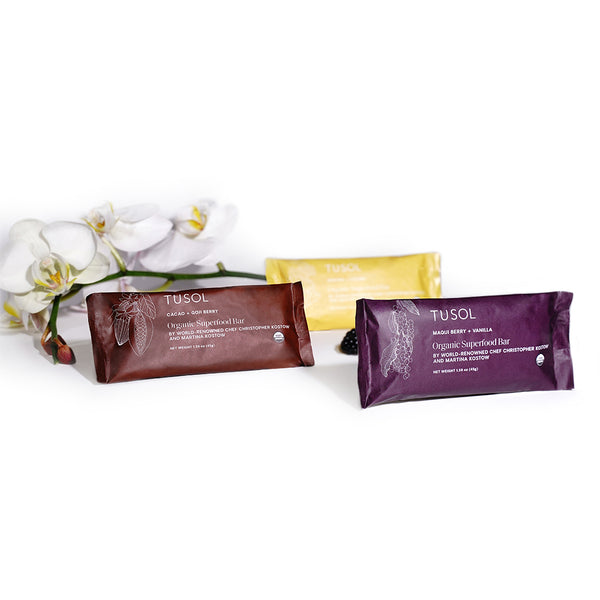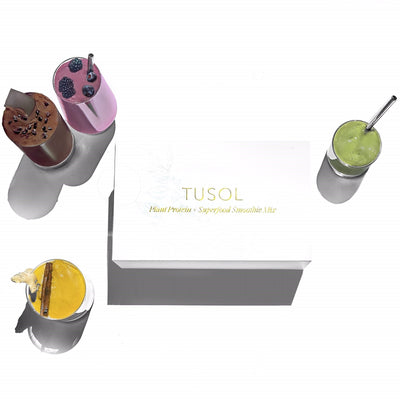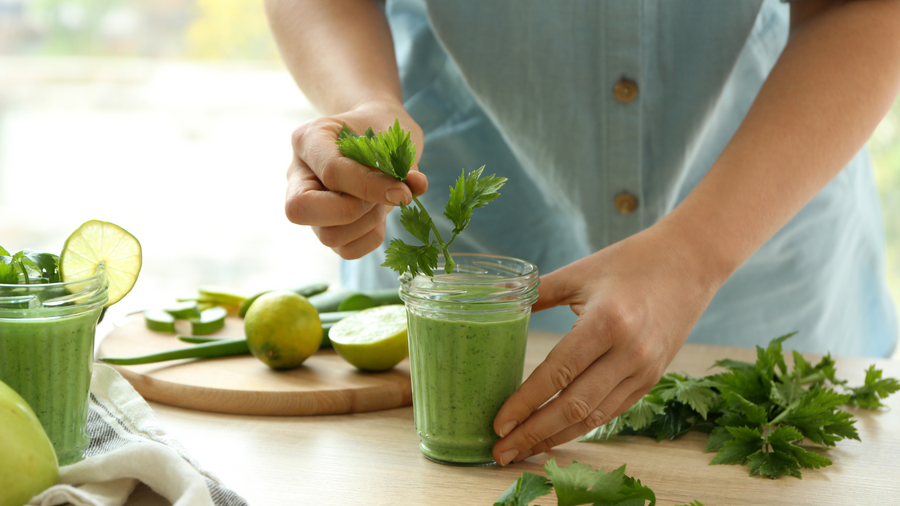Health Benefits of Spirulina
If you are interested in health supplements, you have probably heard of spirulina. It’s popularity has grown exponentially in the last decade, and it offers some of the most diverse benefits of all supplements available today.
But what exactly is spirulina? And how could it help support your health?
What is Spirulina?
Spirulina is a species of microalgae that naturally grows in oceans and salty lakes in subtropical climates. It comes in a green-blue color and is considered to be one of the oldest forms of life on Earth.[1]
The earliest record of spirulina being used as a nutritional supplement comes from the 16th century, when the Spanish reached the South American continent. There, Aztec communities used spirulina as a food and nutritional supplement. They incorporated it into their food or mixed it with water to boost the endurance of marathon runners during long treks.
Today, spirulina has been hailed as a superfood due to its nutritional value. It contains B vitamins, beta-carotene, iron, potassium, niacin, magnesium, a significant amount of calcium, and a high concentration of protein.
What are the benefits of Spirulina?
Spirulina is claimed to treat various health conditions because of its vitamins and nutrients that are not usually found in the average daily diet. Here are the main benefits you can expect from this supplement.
Spirulina is a potent antioxidant
Antioxidants protect us against oxidative damage which harms our DNA and cells. Spirulina is rich in antioxidants and has anti-inflammatory properties. It contains phenolic compounds, phycocyanins, tocopherols, and beta-carotene.
There are various animal studies and clinical trials that confirmed spirulina's ability to enhance the body's anti-oxidation capacity, which improved oxidative stress-induced symptoms. Evidence also suggests that agents with anti-oxidant and anti-inflammatory properties may relieve cardiovascular disease conditions.[2]
Spirulina may have a potential for cancer prevention
Spirulina contains phycocyanin which is claimed to have anti-cancer properties.[3] This is backed up by several research reports showing that phycocyanin plays a significant anti-cancer role in several types of cancer including breast cancer, liver cancer, lung cancers, and leukemia.
For example, one study looked at the effect of spirulina on pre-cancerous lesions in the mouth – the precursor to oral cancer. Results showed that 45% of the subjects who took spirulina for a year saw their lesions disappear.
It stabilizes cholesterol and fats
Spirulina can keep heart conditions away by lowering cholesterol levels. It helps to clear arteries, which reduces the risk of heart disease and prevents the blood clots that cause stroke.
The protein found in spirulina may also keep the level of fats and triglycerides in the blood under control. This in turn lowers the risk of diabetes and pancreatitis.
Spirulina may treat nasal allergies
A 2009 review found that spirulina may alleviate the symptoms of allergic rhinitis or nasal allergies. This was supported by a study of people with allergic rhinitis who benefitted from spirulina consumption.[4] The supplement helped relieve symptoms such as nasal discharge, sneezing, nasal congestion, and itching.
Boosts the immune system and can reduce the risk of anemia
Several studies have looked at the effect of spirulina on immune cells (white blood cells) and anemia (red blood cells and hemoglobin levels). The results suggest that spirulina supplementation supports both of these aspects, helping raise hemoglobin levels and immune cell levels.[5]
However, the studies conducted so far have focused on groups with underlying health conditions, such as a history of anemia or concurrent HIV infection. More research is needed to ascertain the role spirulina might have in supporting these systems in healthy people.
May help maintain healthy eye vision
Spirulina contains a high concentration of zeaxanthin. This is an important nutrient that plays a key role in our eye health, reducing the risk of cataracts and slowing down age-related macular degeneration.[6]
Spirulina can improve athletes’ endurance and performance
A study published in Medicine and Science in Sports Exercise showed the effect of spirulina supplementation on athletes.[7] According to the result, the volunteers who took spirulina supplements for a month were able to run longer before experiencing fatigue. And during the treadmill exercise trial, they burned more fat.
The researchers concluded that the spirulina supplements helped increase the hemoglobin levels in the athletes blood, which increased the capacity of the blood to carry oxygen.
Are there any side effects of taking Spirulina?
Even though spirulina is deemed safe, there is the possibility of side effects with any medicine, whether herbal or pharmaceutical. It is recommended to consult with your doctor to maximize the benefits spirulina has to offer.
Make sure you don’t take contaminated spirulina
The source of your spirulina supplement is very important to make sure it has the properties you expect from it. Wild spirulina growing in contaminated conditions might contain heavy metals and come with types of bacteria that can negatively affect your health.
If you take contaminated wild spirulina daily, you might damage the condition of your liver. So be sure to choose spirulina from a reliable source.
Bleeding conditions
If you suffer from a bleeding disorder or a clotting disorder, spirulina could increase the risk of internal bleeding and bruising. This risk is especially significant for people who take blood thinners on prescription.
Pregnancy and breastfeeding
Pregnant women and nursing mothers should talk to their doctor before taking spirulina supplements. The research in this area is not sufficient to give a verdict regarding the safety of this supplement in these conditions. But as a general rule, it is recommended that pregnant women and breastfeeding mothers avoid taking spirulina.
Pre-existing conditions
People that suffer from diabetes or auto-immune diseases should consult their doctor before taking spirulina. This supplement can have an impact on the blood sugar level which could be a risk for patients with diabetes.
For people that suffer from auto-immune conditions such as multiple sclerosis, rheumatoid arthritis, or lupus, supplements like spirulina that enhance the immune system may trigger a flare-up of symptoms.
How to use spirulina
Spirulina boomed in popularity because of its high nutritional value and health benefits. It is available in various forms—capsules, powder, and even in bottled drinks and other packaged products.
TUSOL’s Balance smoothie packet contains a full serving of spirulina for antioxidants to boost immunity, balance cortisol levels, and improve athletic performance. Here’s a recipe to try!
- TUSOL Balance Smoothie Packet
- 1 cup almond milk
- handful of ice
- banana
- 2 dates
- sprinkle of cacao nibs
- Blend all ingredients and serve!
One of the best ways to bring a bit of spirulina into your day is by making your own refreshing drink. Here is a refreshing tonic recipe we prepared for you—Spirulina Coconut Lemonade!
- 1 cup Coconut water
- 1 tsp spirulina powder
- Squeeze ½ a lemon
- Raw honey
- Mix well or pour into a bottle and shake it up!
Spirulina, with its proven benefits, is definitely worth adding to your daily diet.
References
- What is Blue-Green Algae? https://www.webmd.com/vitamins/ai/ingredientmono-923/blue-green-algae
- Deng R, Chow TJ. Hypolipidemic, antioxidant, and antiinflammatory activities of microalgae Spirulina. Cardiovasc Ther. 2010;28(4):e33-e45. doi:10.1111/j.1755-5922.2010.00200.x
- Jiang L, Wang Y, Yin Q, et al. Phycocyanin: A Potential Drug for Cancer Treatment. J Cancer. 2017;8(17):3416-3429. doi:10.7150/jca.21058
- Cingi, C., Conk-Dalay, M., Cakli, H. et al. The effects of spirulina on allergic rhinitis. Eur Arch Otorhinolaryngol 2008;265:1219–1223. doi:10.1007/s00405-008-0642-8
- Ngo-Matip, ME., Pieme, C.A., Azabji-Kenfack, M. et al. Impact of daily supplementation of Spirulina platensis on the immune system of naïve HIV-1 patients in Cameroon: a 12-months single blind, randomized, multicenter trial. Nutr J. 2015:14, 70. doi:10.1186/s12937-015-0058-4
- The Role of Zeaxanthin in Vision: https://www.webmd.com/eye-health/lutein-zeaxanthin-vision
- Kalafati M, Jamurtas AZ, Nikolaidis MG, et al. Ergogenic and antioxidant effects of spirulina supplementation in humans. Med Sci Sports Exerc. 2010;42(1):142-151. doi:10.1249/MSS.0b013e3181ac7a45














